WAIT... Your Order Is Not Complete!
TO PREVENT DOUBLE CHARGES, DO NOT CLOSE, REFRESH, OR PRESS 'BACK' ON THIS PAGE

Please read this page before you complete your order!
Do you want to do
EVERYTHING YOU CAN
to improve your balance and make sure
you never have a nasty, dangerous fall?
IF SO... please read this short page
carefully, right now, before you
complete your order.
When I look at all of my most successful clients and students — the ones who have made the most progress, who’ve gotten the best and fastest results, who have restored their balance, stability, and independence, and finally returned to their normal, active, healthy, happy lives… WHAT’S THE ONE THING I SEE IN COMMON IN ALL OF THESE PEOPLE?
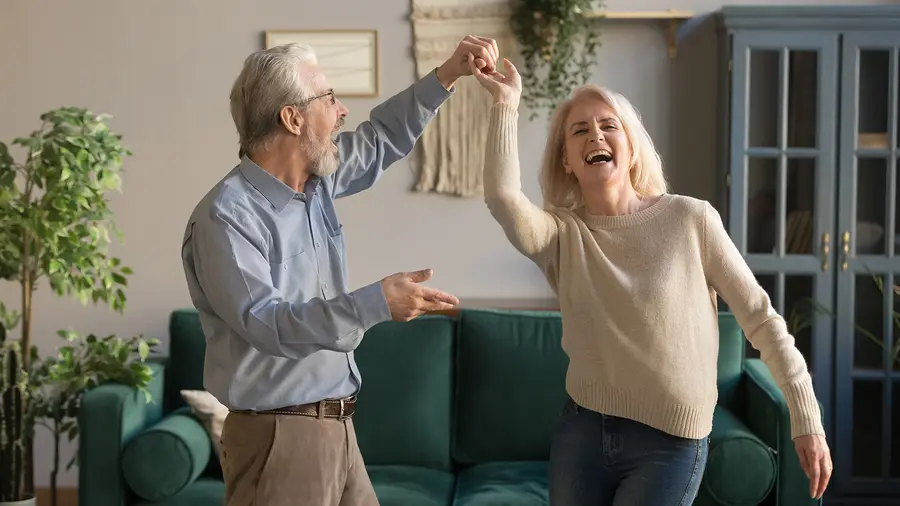
They did EVERYTHING THEY COULD.
No matter what their pain, injury, or condition was, these people who got the best results and got back to active, healthy, happy lives, DID EVERYTHING THEY COULD to make that happen.
You just bought my Balance Training Handbook program. Thank you for purchasing it. It’s an amazing program, and I KNOW that it will help you tremendously. Most people will get excellent results using just my Balance Training Handbook program.
But I don’t want to take any chances. So, just like all my most successful clients and students, I want to DO EVERYTHING I CAN to help you, and I want you to DO EVERYTHING YOU CAN to improve your balance, so you don’t ever have to experience a nasty, dangerous, scary fall, that might put you in the hospital, or worse!
So... there's something very important you can do that can help your balance in a BIG way, but in a different way than exercise alone can.
And the beautiful thing is...
This could be the EASIEST and FASTEST
way to improve your balance and help you
avoid a nasty, dangerous fall...
What if there was something you could do once a day, that only took 10 seconds, that would improve your balance, from the inside out? Turns out, there is.
There’s a new nutraceutical supplement called Balance Boost Formula, that I’m recommending to all of my clients and students, because it’s been carefully formulated with natural ingredients that have been shown to improve balance.
Lots of recent research has shown that there is an intimate relationship between cognitive function and physical balance, and that improvement in cognitive function can lead to improvement in physical balance.
Here are just a few of the specific findings in the research:
- A 6-week cognitive training program was shown to improve balance abilities in the elderly[1]
- Research literature has shown that cognitive impairment in the elderly and older adults increases the risk of falling[2]
- It was found that cognitive impairment before a stroke resulted in poorer balance after stroke. In contrast, individuals with intact cognitive function before stroke had significantly improved balance[3] after stroke. This study clearly shows the intimate relationship between cognitive function and physical balance.
SO... based on these research findings (and many more), cognitive function is important for balance, walking, and other physical activities, especially in elderly people.
This is why I am now recommending Balance Boost Formula to ALL of my clients and ALL of my students.
Balance Boost Formula contains natural ingredients that were carefully selected for their ability to improve cognitive function, which can improve balance.
These are the ingredients in Balance Boost Formula, and how each of them has been shown to improve cognitive function (and therefore balance):
- Bacopa monnieri. Bacopa monnieri is an herb that is traditionally used in Ayurvedic medicine to improve intelligence and memory. Studies have provided evidence that suggests Bacopa can improve memory free recall or working memory, as well as attention and cognitive processing[4]. And it’s been shown that balance tasks results are better in individuals with improvements in working memory, focus and attention[5].
- St. John’s Wort St. John’s Wort is a flowering plant that has been used in alternative medicine to treat depression, anxiety or insomnia, but recent studies have shown that it can also improve neuroplasticity in the brain. It does this by reducing stress-related memory impairments and resorting levels of synaptic plasticity proteins in the hippocampus and prefrontal cortex[6]. This is important because neuroplasticity is critical for walking and balance in older adults[7].
- Phosphatidylserine. There are several studies showing that phosphatidylserine is important in both memory and cognition, but also during exercise. In patients with age-associated memory impairments, it was found that phosphatidylserine supplementation was able to improve learning and memory tasks[8]. As improvement in memory is related to improvement in balance tasks, it may also reduce the risk of falling, especially in seniors.[9]
- Ginkgo biloba. Ginkgo biloba has been traditionally used as a Chinese medicine for improving blood flow, memory, and concentration, and can sharpen thinking. In older people with mild cognitive impairment, it has been shown that there may be deficits in cerebral blood flow[10]. This reduced blood flow, particularly in the frontal lobe, is associated with impairments in movement and stability[11]. As ginkgo biloba improves blood flow in the brain, it may improve cognitive function, as well as coordination, balance, and stability. This was corroborated in a study which investigated the effects of ginkgo biloba on subjects with mild cognitive impairment while walking. This study showed that ginkgo biloba was able to improve dual-task gait, balance and coordination[12]. This is especially important as improved gait can reduce the risk of falling, especially in older people.
- Vinpocetine. Vinpocetine is a synthetic compound used to enhance memory and increase brain metabolism. In studies with 12-week oral supplementation of vinpocetine, it was found that individuals with mild cognitive impairments had significant improvements in cognitive function[13].
- Huperzine. Huperzine supplementation has been widely studied as a treatment for neurological conditions such as Alzheimer’s disease. For example, one study showed that Huperzine supplementation in Alzheimer’s patients was able to improve memory, cognitive and behavioural functions[14]. Studies conducted on Alzheimer’s patients show that balance control deteriorates with increased severity of cognitive impairments[15]. In addition, higher executive function, such as memory and cognition, play an important role in balance control.
- Acetyl L-Carnitine. Acetyl L-Carnitine is a compound that is naturally produced in the body. It is typically used for improving memory and thinking skills, and has been shown to improve functions such as spatial memory and temporal memory[16]. Research shows that spatial memory may play a role in balance and coordination, such as during walking, and could prevent the risk of falling, especially in the elderly.
There is a TON of research
that backs this up...
Numerous research studies, scientific papers, and medical articles have shown that improvements in cognitive function can lead to improvements in balance and stability.
And lots of research has shown that the ingredients in Balance Boost Formula can improve cognitive ability (and therefore balance).
Here are just a few examples of the research that backs all of this up:
- Crook TH, et al. Effects of phosphatidylserine in age-associated memory impairment. Neurology. 1991;41(5).
- Deshmukh R, et al. Amelioration of intracerebroventricular streptozotocin induced cognitive dysfunction and oxidative stress by vinpocetine – a PDE1 inhibitor. European Journal of Pharmacology. 2009;620(1-3):49-56.
- Dorner et al. The effect of structured strength and balance training on cognitive function in frail, cognitive impaired elderly long-term care residents. Aging Clinical and Experimental Research. 2013;19:400-405.
- Doumas M, et al. Working memory and postural control: Adult age differences in potential for improvement, task priority, and dual tasking. The Journals of Gerontology, Series B: Psychological Sciences and Social Sciences. 2009;64:193-201.
- Gshwind Y, et al. Ginkgo biloba special extract LI 1370 improves dual-task walking in patients with MCI: a randomized, double-blind, placebo-controlled exploratory study. Aging Clinical and Experimental Research. 2017;29:609-619.
- Kiewert C, et al. Stimulation of hippocampal acetylcholine release by hyperforin, a constituent of St. John’s Wort. Neuroscience Letters. 2004;364(3):195-198.
- Kingsley M, et al. Effects of phosphatidylserine on exercise capacity during cycling in active males. Medicine & Science in Sports & Exercise. 2006;38(1):64-71.
- Laessoe U, et al. Residual attentional capacity amongst young and elderly during dual and triple task walking. Human Movement Science. 2008;27:496-512.
- Lee YM, et al. Effects of computer-assisted cognitive rehabilitation training on the cognition and static balance of the elderly. Journal of Physical Therapy Science. 2013;25(11):1475-1477.
- Liu J, et al. Memory loss in old rats is associated with brain mitochondrial decay and RNA/DNA oxidation: partial reversal by feeding acetyl-l-carnitine and/or R-alpha-lipoic acid. PNAS. 2002;99(4):2356-2361.
- Nakamura T, et al. Postural and gait disturbance correlated with decreased frontal cerebral blood flow in Alzheimer disease. Alzheimer Dis Assoc Disord. 1997;11:132-139.
- Pahlman U. Cognitive function and improvement of balance after stroke in elderly people: the Gothenburg cognitive stroke study in the elderly. Disability and Rehabilitation. 2011;33(21-22):1952-1962.
- Pase M, et al. The cognitive-enhancing effects of Bacopa monnieri: a systematic review of randomized, controlled human clinical trials. The Journal of Alternative and Complementary Medicine. 2012; 18(7).
- Peth-Nui T, et al. Effects of 12-week Bacopa monnieri consumption on attention, cognitive processing, working memory and functions of both cholinergic and monoaminergic systems in healthy elderly volunteers. Evidence-Based Complementary and Alternative Medicine. 2012.
- Reuter-Lorenz PA, et al. Neurocognitive aging and the compensation hypothesis. Current Directions in Psychological Sciences. 2008;17:177-182.
- Suchy J, et al. Dietary supplementation with a combination of alpha lipoic acid, acetyl-L-carnitine, glycerophosphocoline, docosahexanoic acid, and phosphatidylserine reduces oxidative damage to murine brain and improves cognitive performance. Nutrition Research. 2009;29(1):70-74.
- Suttanon P, et al. Balance and mobility dysfunction and falls risk in older people with mild to moderate Alzheimer Disease. American Journal of Physical Medicine & Rehabilitation. 2012;91(1):12-23.
- Tangen GG, et al. Relationships between balance and cognition in patients with subjective cognitive impairment, mild cognitive impairment, and Alzheimers disease. Physical Therapy. 2014;94(8):1123-1134.
- Tinneti ME. Preventing falls in elderly persons. New England Journal of Medicina. 2003;348:42-49.
- Trofimiuk E, et al. St. John’s wort (Hypericum perforatum) diminishes cognitive impairment caused by the chronic restraint stress in rats. Pharmacological Research. 2005;51(3):239-246.
- Trofimiuk E, et al. St. John’s wort may relieve negative effects of stress on spatial working memory by changing synaptic plasticity. Naunyn-Schmiedeberg’s Archives of Pharmacology. 2011;383:415-422.
- Uabundit N, et al. Cognitive enhancement and neuroprotective effects of Bacopa monnieri in Alzheimer’s disease model. Journal of Ethnopharmacology. 2010;127(1):26-31.
- Valikovics A. Investigation of the effect of vinpocetine on cerebral blood flow and cognitive functions. Ideggyogyaszati Szemle. 2007;60(7-8):301-310.
- Wang R, et al. Huperzine A attenuates cognitive dysfunction and neuronal degeneration caused by B-amyloid protein-(1-40) in rat. European Journal of Pharmacology. 2001;421(3):149-156.
- Winblad B, et al. Mild cognitive impairment – beyond controversies, towards a consensus: report of the International Working Group on mild cognitive impairment. J Intern Med. 2004;256:240-246.
- Xu SS, et al. Efficacy of tablet huperzine-A on memory, cognition, and behavior in Alzheimer’s disease. Acta Pharmacologica Sinica. 1995;16(5):391-395.
The best part is…
YOU GET IT FOR FREE
Don’t take my word for it... or all the research I’ve shown you that backs all of this up.
Find out for yourself.
See for yourself if Balance Boost Formula can actually help improve your balance.
I want you to be 100% comfortable and KNOW FOR SURE that this can actually help you, before you spend even ONE DIME on it.
So, I’m going to send you one bottle — a 30-day supply, FOR FREE.
But you have to act now.
You can only get this FREE BOTTLE if you add it to your order RIGHT NOW, before you leave this page.
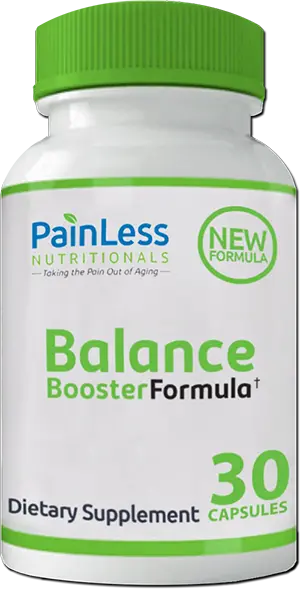
Get a 30-day supply of Balance Boost Formula
Click the Big Yellow Button Below
to Get Your FREE Bottle of
Balance Boost Formula
(WARNING! This FREE Offer Is Only Good RIGHT NOW.
It EXPIRES As Soon As You Leave This Page!)
Today’s Price: FREE
Clicking the button below activates my discount for a FREE bottle of
Balance Boost Formula (just pay $9.95 for U.S. shipping, $19.95 for international).
After the 30-day trial, it’s just $29.95 for 1 bottle a month.
You can cancel anytime, and you have a 100% money-back guarantee!
I agree to terms.

Click here to add your FREE BOTTLE of Balance Boost Formula to your order now...
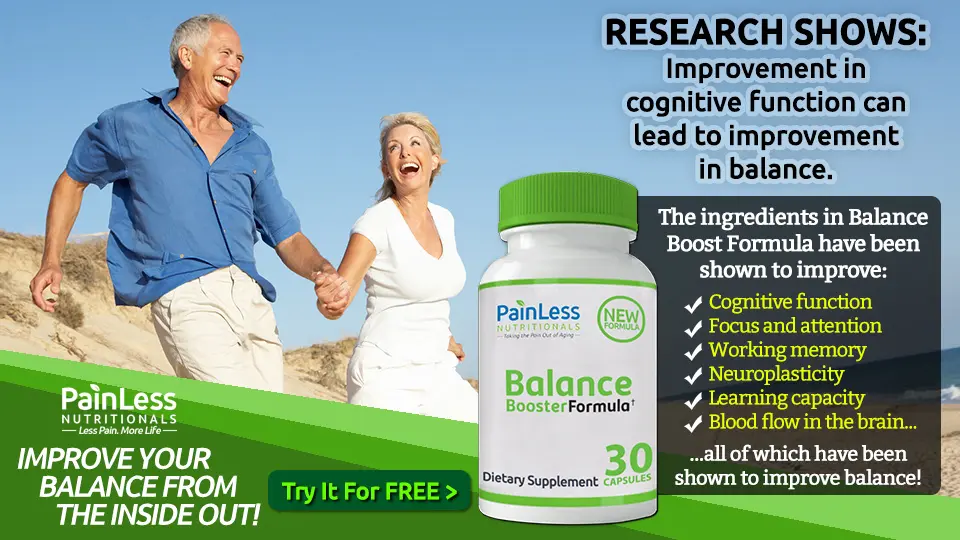
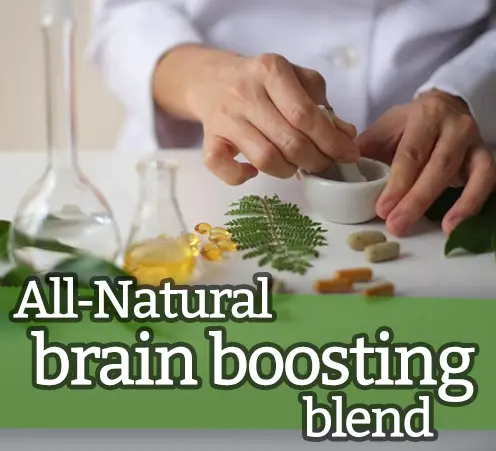
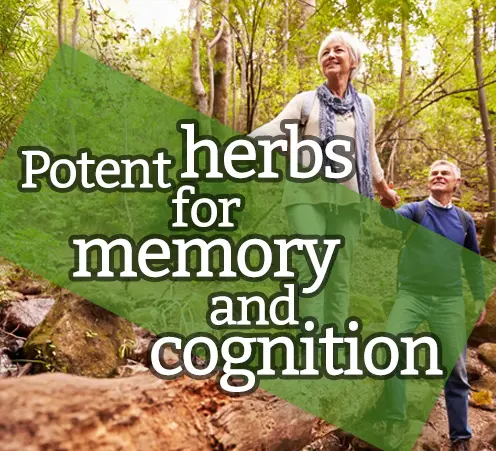
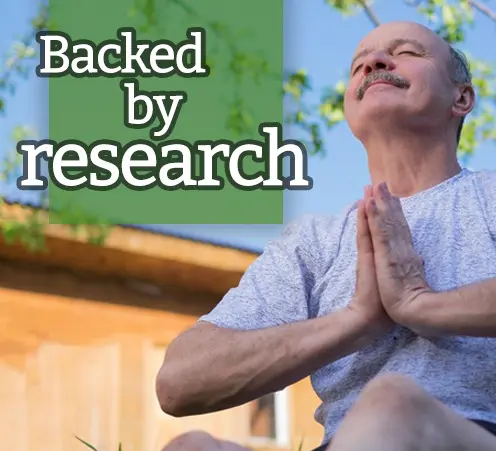
AND... there’s more good news:
When you add this free bottle to your order right now, you’ll be able to lock in a SIGNIFICANT DISCOUNT if you choose to continue using Balance Boost Formula.
Everyone else will be paying $49 per bottle per month — our regular retail price, but you will get it every month (forever) for just $29.95.
So, after your first free bottle, every month after that, we’ll send you one bottle of Balance Boost Formula for just $29.95. (Everyone else pays $49 per bottle!)
And not to worry — if for any reason it just doesn’t work for you, or you’re not 100% happy with it, you can cancel at any time and receive a full refund with no questions asked.
What do you have to lose?
(And what do you have to gain?)
You have nothing to lose.
I’m going to send you this bottle of Balance Boost Formula FOR FREE...
...because I want you to try it out and see for yourself that it can help you improve your balance.
And just like all of my most successful students and clients, you’ll know that you’re DOING EVERYTHING YOU CAN to improve your balance and lower your changes of a dangerous fall.
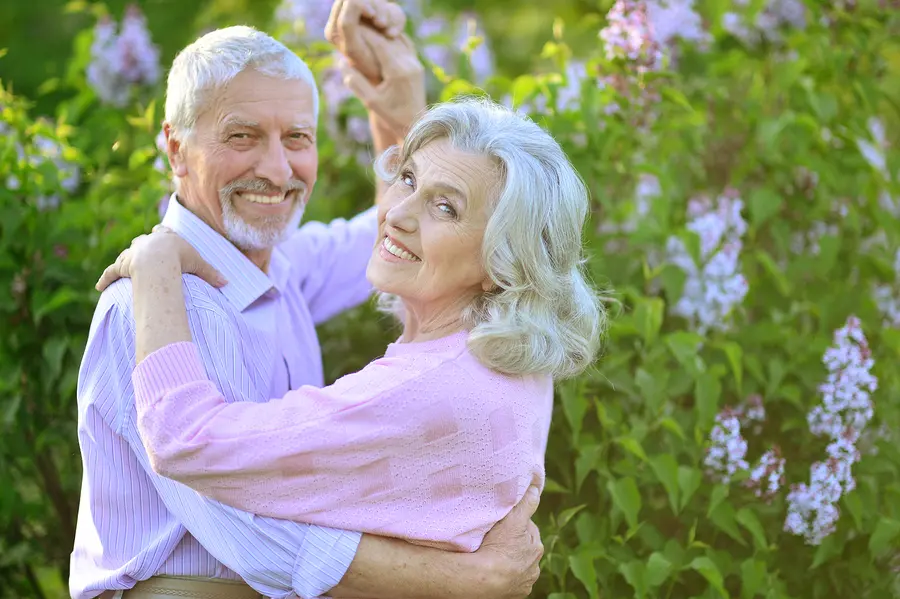
If, for any reason, you don’t like it, or you don’t see any improvement, you have no obligation, and you’ve lost nothing.
But, what if Balance Boost Formula really can improve your cognitive functioning, your working memory, your focus and attention, and the blood flow to your brain?
All of which has been shown to improve balance, stability, and coordination...
Lots of research has already shown this to be the case.
So, isn’t it worth it to at least give this a try?
Especially since it’s FREE... and you have absolutely no risk?
Click the Big Yellow Button Below
to Get Your FREE Bottle of
Balance Boost Formula
(WARNING! This FREE Offer Is Only Good RIGHT NOW.
It EXPIRES As Soon As You Leave This Page!)
Today’s Price: FREE
Clicking the button below activates my discount for a FREE bottle of
Balance Boost Formula (just pay $9.95 for U.S. shipping, $19.95 for international).
After the 30-day trial, it’s just $29.95 for 1 bottle a month.
You can cancel anytime, and you have a 100% money-back guarantee!
I agree to terms.

Click here to add your FREE BOTTLE of Balance Boost Formula to your order now...




No thanks — I don’t want my free bottle. Please send it to someone else.
- Lee YM, et al. Effects of computer-assisted cognitive rehabilitation training on the cognition and static balance of the elderly. Journal of Physical Therapy Science. 2013;25(11):1475-1477.
- Tinneti ME. Preventing falls in elderly persons. New England Journal of Medicina. 2003;348:42-49.
- Pahlman U. Cognitive function and improvement of balance after stroke in elderly people: the Gothenburg cognitive stroke study in the elderly. Disability and Rehabilitation. 2011;33(21-22):1952-1962.
- Pase M, et al. The cognitive-enhancing effects of Bacopa monnieri: a systematic review of randomized, controlled human clinical trials. The Journal of Alternative and Complementary Medicine. 2012; 18(7).
Peth-Nui T, et al. Effects of 12-week Bacopa monnieri consumption on attention, cognitive processing, working memory and functions of both cholinergic and monoaminergic systems in healthy elderly volunteers. Evidence-Based Complementary and Alternative Medicine. 2012.
- Doumas M, et al. Working memory and postural control: Adult age differences in potential for improvement, task priority, and dual tasking. The Journals of Gerontology, Series B: Psychological Sciences and Social Sciences. 2009;64:193-201.
- Trofimiuk E, et al. St. John’s wort may relieve negative effects of stress on spatial working memory by changing synaptic plasticity. Naunyn-Schmiedeberg’s Archives of Pharmacology. 2011;383:415-422.
- Reuter-Lorenz PA, et al. Neurocognitive aging and the compensation hypothesis. Current Directions in Psychological Sciences. 2008;17:177-182.
- Crook TH, et al. Effects of phosphatidylserine in age-associated memory impairment. Neurology. 1991;41(5).
- Doumas M, et al. Working memory and postural control: Adult age differences in potential for improvement, task priority, and dual tasking. The Journals of Gerontology, Series B: Psychological Sciences and Social Sciences. 2009;64:193-201.
- Winblad B, et al. Mild cognitive impairment – beyond controversies, towards a consensus: report of the International Working Group on mild cognitive impairment. J Intern Med. 2004;256:240-246.
- Nakamura T, et al. Postural and gait disturbance correlated with decreased frontal cerebral blood flow in Alzheimer disease. Alzheimer Dis Assoc Disord. 1997;11:132-139.
- Gshwind Y, et al. Ginkgo biloba special extract LI 1370 improves dual-task walking in patients with MCI: a randomized, double-blind, placebo-controlled exploratory study. Aging Clinical and Experimental Research. 2017;29:609-619.
- Valikovics A. Investigation of the effect of vinpocetine on cerebral blood flow and cognitive functions. Ideggyogyaszati Szemle. 2007;60(7-8):301-310.
- Xu SS, et al. Efficacy of tablet huperzine-A on memory, cognition, and behavior in Alzheimer’s disease. Acta Pharmacologica Sinica. 1995;16(5):391-395.
- Tangen GG, et al. Relationships between balance and cognition in patients with subjective cognitive impairment, mild cognitive impairment, and Alzheimers disease. Physical Therapy. 2014;94(8):1123-1134.
- Liu J, et al. Memory loss in old rats is associated with brain mitochondrial decay and RNA/DNA oxidation: partial reversal by feeding acetyl-l-carnitine and/or R-alpha-lipoic acid. PNAS. 2002;99(4):2356-2361.